#EP2014 in Croatia: Peculiarities of Political Survival
Adelina Marini, May 28, 2014
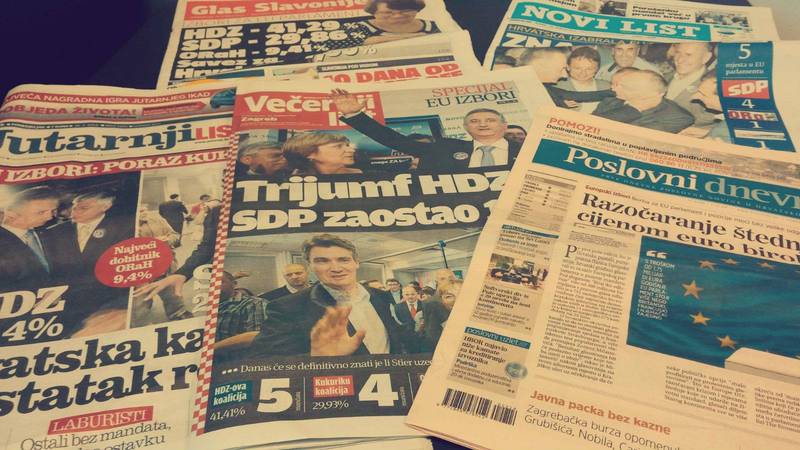 The news from the elections for the European Parliament in Croatia are many, but three emerge as the biggest. The first is that voter turnout has increased insignificantly, which refutes last year's excuses that it was low because of the too short campaign. This year, when the Croats voted for a full mandate of their representatives in Strasbourg and Brussels, the campaign lasted more than five weeks and despite that, it did not lead to notable boost of turnout. Last year, it was a little over 20 per cent and this year it is 25.24%. With this result, the Croats have joined the Central European group of systemic non-voters in EU elections. The second news is that the preferential option is growingly enjoyed by the Croatian voters and they are using it to spoil the thin calculations of the political leaders. The third news is that the newest EU member state will for the first time have a green MEP.
The news from the elections for the European Parliament in Croatia are many, but three emerge as the biggest. The first is that voter turnout has increased insignificantly, which refutes last year's excuses that it was low because of the too short campaign. This year, when the Croats voted for a full mandate of their representatives in Strasbourg and Brussels, the campaign lasted more than five weeks and despite that, it did not lead to notable boost of turnout. Last year, it was a little over 20 per cent and this year it is 25.24%. With this result, the Croats have joined the Central European group of systemic non-voters in EU elections. The second news is that the preferential option is growingly enjoyed by the Croatian voters and they are using it to spoil the thin calculations of the political leaders. The third news is that the newest EU member state will for the first time have a green MEP.
The calculations of the Social Democratic Party (SDP)
This is Prime Minister Zoran Milanovic's party, a senior partner in the ruling Kukuriku (cock-a-doodle-doo) coalition, in which also take part first Deputy Prime Minister and Minister for Foreign and EU affairs Vesna Pusic's Liberals from HNS, the regional party from Istra IDS and the Croatian Union of Pensioners (HSU). The coalition is currently in the middle of its term, but it is faced by severe challenges. The country's economy has been for a sixth year in a row in recession, unemployment is rapidly growing, especially youth unemployment, the government is forced to make painful structural reforms under the pressure of the very influential trade unions. The country is in an excessive deficit procedure (EDP) and is now forced to cut to the bone, but it is more likely Zagreb to start a new conflict with Brussels because Premier Milanovic firmly rejects the possibility of a Greek scenario in Croatia.
The moods in the EU are quite favourable Zagreb to win and the Brussels's stringency to be mitigated. This, however, will hardly bring any benefits to the coalition which was shaken in the past months by a series of corruption scandals. Mr Milanovic is trying to position himself, to some extent successfully, as a conductor of operation "Clean Hands" in Croatian politics and as a person to whom rule of law is a major priority. Some of the corruption cases, however, have seriously tarnished this image. Among the big scandals are the arrest of the governor of the poorest Croatian province Sisacko-maslovacka, Ms Marina Lovric-Merzel. She is accused of abuse with public funds and trade with influence. She is awaiting the investigation against her by the specialised anti-corruption prosecution USKOK in the preliminary arrest. Marina Lovric-Merzel was a very strong figure in the SDP and her arrest has revealed a thick network of dependencies.
This was one of the reasons why Zoran Milanovic was postponing for too long her removal from her party positions. His hesitation caused heavy criticism by the opposition and media in Croatia. It was so huge that Merzel was forced to resign herself. The prime minister's arguments were that the accusations against her were not proved yet. The SDP leader had a similar reaction regarding the scandal involving Vukovar's mayor Zeljko Sabo, also a member of SDP. Last year he was audio recorded while offering a bribe to a municipal councillor from the oppositional HDZ party. The court accepted the recording as evidence and USKOK immediately began investigation. Sabo resigned from the mayorship and the party. Milanovic was slow on deciding about him too.
However, he did not have any hesitation to fire the most liked minister in the cabinet - Minister of Finance Slavko Linic. Media have been talking for months about an internal party war between the old and ew wing in the SDP and also between Zagreb and Rijeka because Mr Linic comes from the Rijeka's structure of SDP. First, a scandal broke out with Linic's deputy, Branko Segon, who was found in a conflict of interest. He withdrew a very lucrative loan from the state-owned Croatian Bank for Development (HBOR). Linic was reluctant to part with his deputy until the accusations against him were proved and the premier was forced to invite him to do so publicly (on TV). Then the head of the Croatian revenue agency resigned. She fell victim of the scandal with Marina Lovric-Merzel after it was revealed that the former governor often used to send gifts to Nada Smiljanec Covlic and other officials from the tax administration.
Literally days after her leaving, a local popular daily revealed that Mr Linic signed a permission the state to buy the land of a huge tax debtor at much higher price than the value of the land. The prime minister did not hesitate even a second to let his finance minister go. This left a shadow of doubt that Mr Milanovic might be using double standards and Linic himself promised to tell everything after the elections, thus fueling speculations that he has something to say.
This is not the only internal party battle Milanovic is leading. Another front has been opened by Tonino Picula, a former foreign minister and currently MEP. A very loved and moderate politician. In the European Parliament, he worked together with MEP from the "enemy" party HDZ in the initiative to demand a stronger commitment of the EU to Bosnia and Herzegovina. For this, both MEPs were punished with uncomfortable places on the election lists. Tonino Picula was under number 5. Croatian voters used the preferential vote to push him up to number one. He received 48.13% of the votes for the list much ahead of the leader of the list, Neven Mimica, Croatia's first commissioner, who received only 8.14% of the votes.
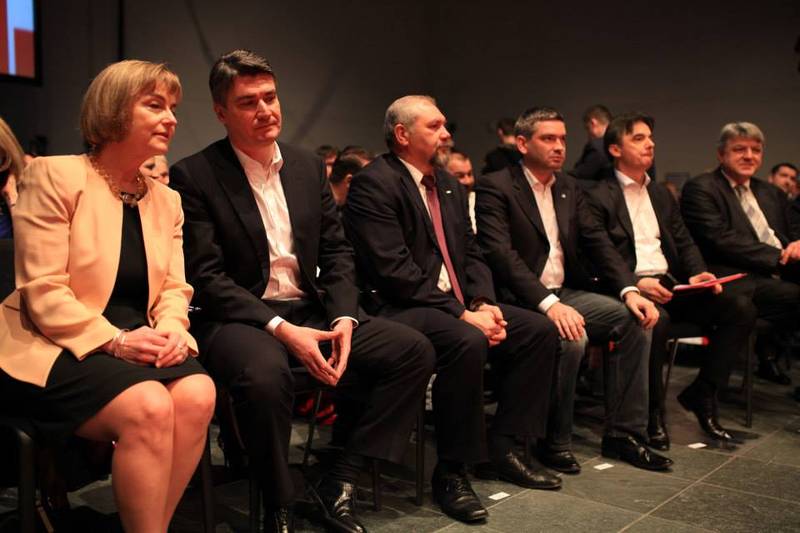 The third internal battle of Milanovic was on coalition level. After he ignored his coalition partners last year by giving them unelectable positions on the list, under the threat of a break-up of the coalition, SDP were forced to arrange the candidates in such a way to allow two of the key junior partners in it to enter the EP. The deal has worked and HNS has managed to send Jozo Radoz who was seated third, but received only 5.61% of the votes, which showed again that HNS will be the biggest loser of this government. IDS sent Ivan Jakovcic.
The third internal battle of Milanovic was on coalition level. After he ignored his coalition partners last year by giving them unelectable positions on the list, under the threat of a break-up of the coalition, SDP were forced to arrange the candidates in such a way to allow two of the key junior partners in it to enter the EP. The deal has worked and HNS has managed to send Jozo Radoz who was seated third, but received only 5.61% of the votes, which showed again that HNS will be the biggest loser of this government. IDS sent Ivan Jakovcic.
The overall score of the Social Democrats is 29.93%, which is a serious loss. Nonetheless, Premier Zoran Milanovic stated that there was no need of resigning and seemed as if everything was fine. It is a fact, however, that because of all the internal party battles SDP ended up with only two MEPs and the coalition as a whole sends four people. It is the coalition, however, that causes the biggest problem in a European context. It consists of parties who are members of various political families. SDP is part of the family of European Socialists and HNS are members of ALDE. IDS is also with liberal views. This year, voters had the possibility to support also a candidate of the European political families for the European Commission presidency. In Croatia, however, this led to the following paradox: in order to vote for Guy Verhofstadt, for instance, you have to vote for SDP, therefore for Martin Schulz, too.
HDZ's hour? Not exactly
Similar is the situation with the other political mastodon - HDZ. What keeps the party at this level of support is that it is recognised by the hard core of Croatian voters as the party of independence or, more precisely, Tudjman's party - the president who made Croatia an independent state. Neither in Croatia and even less in the party itself one can be allowed to utter even one bad word about late Franjo Tudjman which prevents objective analyses about the problems of the Croatian society and politics as a whole. This is the main reason why the party has not disappeared from the political scene. This is the positive reason. The negative reason why the party is not gaining, however, is that it has turned into a symbol of corruption. This is the only party in Croatian history, and probably not only in Croatia, which was sentenced for corruption and with this still unconfirmed by a higher instance sentence it stood in the elections.
This is Ivo Sanader's party, the former prime minister who is in prison to serve long and constantly growing sentences for corruption, war profiteering, abuse of power, personal favouring, etc. The party has the biggest number of sentenced officials (ministers, deputy ministers, associates). In an attempt to save it from political death, its leader Tomislav Karamarko pulled it toward the far right. The party stood in the elections, just like last year, in a coalition with the nationalistic Party of Rights Dr Ante Starcevic, whose leader Ruza Tomasic had the main merit for the party's good performance last year. Then she embodied the wonder of preferential voting. She was seated under number 6 on the list, but preferential voting led her to the top. Once in the European Parliament, she joined the moderate eurosceptic group of the European Conservatives and Reformists (ECR) where British Prime Minister David Cameron's Conservatives are situated.
This year, she was again seated sixth, but her very being on the HDZ list angered EPP leader Joseph Daul. However, there is no European rule to forbid this. And Ruza Tomasic did it again. This year, too, from position number six she came out first having received 28.08% of the votes, thus pulling up the opposition list. This time, though, she was not the only motor of success. Unlike last year, when HDZ and SDP were neck to neck, now the HDZ has a significant advantage - 41.42%. A big merit for the victory have some other candidates, too, who have proved valuable MEPs, but also some candidates who continue to fuel suspicion on whether HDZ is a truly cenre-right party or a far right force. Member of the former group is the leader of the HDZ list, Andrej Plenkovic, who received 18.61% of the votes and Davor Ivo Stier, who received 6.92%. Stier's case is very special because he, as mentioned before, was 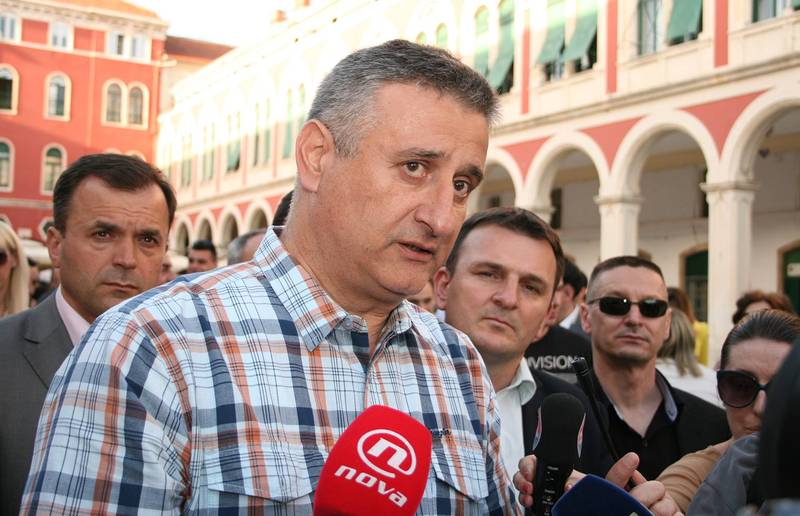 punished by the party leadership for cooperating with the Social Democrat Tonino Picula on Bosnia and Herzegovina.
punished by the party leadership for cooperating with the Social Democrat Tonino Picula on Bosnia and Herzegovina.
And although he got much more votes than other candidates, like Ivana Maletic and Dubravka Suica, he did not succeed passing the threshold for preferential voting of 10% and was about to remain outside the European Parliament. Another external to HDZ candidate also received inexplicably big support. This is Marijana Petir from the Croatian Peasants' Party, who has a long history of losing elections as in her own town so in her province. She is known as homophobe number one in Croatia. It is not clear, after entering EP, which group will she join. And this is a big riddle on EU level as well, because it is not clear from the results whether people from coalition lists are counted separately - in the "Others" tier or in the EPP group (in this case). It is possible Ruza Tomasic, due to her membership in ECR last year, to be counted as their number, but one cannot tell from the detailed scores. The problem is not that big given that we are talking about only one or two members which does not change the overall outcome from the May 25th elections, but it questions the reliability of the results and the vote itself. Tomislav Karamarko immediately took advantage of the victory to demand again early parliamentary elections.
Croatia will have its first green MEP
This is the biggest news from the elections, although the polls had predicted this long ago. With one MEP ended up one of the newest political formations in Croatia - the ORaH party (For Sustainable Development of Croatia - the abbreviation means walnut). The party's story is very interesting. It has been established by Mirela Holy, who was a minister of the environment in Zoran Milanovic's government, but even before she completed her first year as minister she was accused of conflict of interest. She was fired after the leak in media of an e-mail of hers, in which she is lobbying the wife of SDP member to be kept at work. This was the first leaving of a member of the cabinet. After staying some time in Parliament, Mirela Holy, known in Croatia as the "black lady" for often wearing black, decided to set up a party of her own in the end of last year.
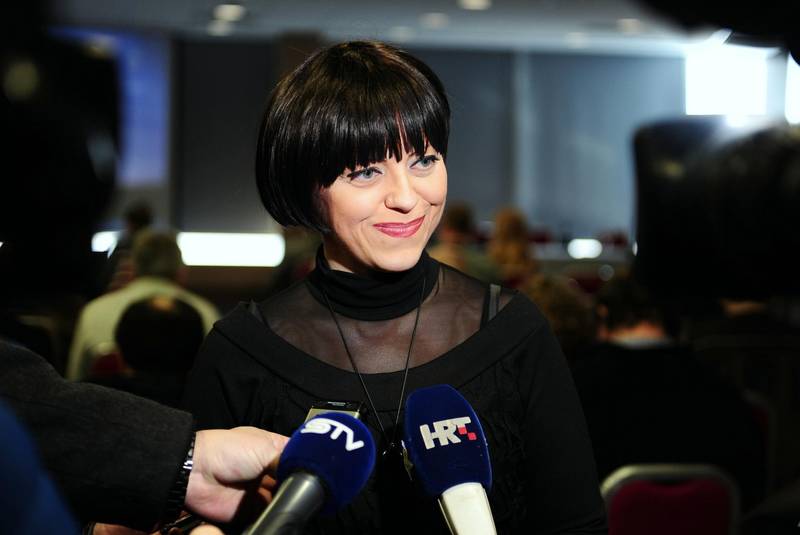 And she managed to win 9.42% of the votes, which is a huge success, especially for a purely green agenda. The reason for her support, however, is not the party's green profile, but because many people saw in her an alternative. She read precisely this in the election outcome and gave her seat to the second on the list Professor Davor Skrlec. Mirela Holy refused to enter any coalitions and announced that she is ready to appear on her own in parliamentary elections.
And she managed to win 9.42% of the votes, which is a huge success, especially for a purely green agenda. The reason for her support, however, is not the party's green profile, but because many people saw in her an alternative. She read precisely this in the election outcome and gave her seat to the second on the list Professor Davor Skrlec. Mirela Holy refused to enter any coalitions and announced that she is ready to appear on her own in parliamentary elections.
It is a disappointment for many that Jadranka Kosor, the former prime minister who finished the negotiations with the EU and signed the accession treaty, remained outside the EP. She was expelled from HDZ by Tomislav Karamarko who accused her of turning her back to tudjmanism and in betrayal for publicly stating her differences with his positions. Ms Kosor suffered a heavy blow and has still not decided what to do with her political life. She appeared in the last moment as a candidate on the coalition list of the National Forum, but was seated last (she wished so). Expectedly, the preference moved her to the top. Nonetheless, the coalition did not make it over the threshold of 5% as it got only 2.40% of the votes. One of the reasons is that the coalition joined the race too late and another reason, which Kosor herself recognised, is that many people did not know she was a candidate at all. In other words, she was not noticed as a candidate on the list of the National Forum.
Many analysts in Croatia point out that the two-pole party model in Croatia is on the verge of a collapse. The birth of new formations is gaining speed and the more the mastodon parties continue to deny the need of reforms both on state and internal party level and ignore the will of the voters by forcing their candidates on them, the more the political scene will fragment and the focus will shift instead on the priorities for Croatia to political construction. This has already happened in Bulgaria and the result is not nice. The political situation not only in Croatia, but in the EU at large, shows that there is a great need for a political change. It is time the Croatian politicians to realise this and start offering alternatives instead of hiding behind a growingly slippery power.
 Kolinda Grabar-Kitarovic | © KGK
Kolinda Grabar-Kitarovic | © KGK Jozo Rados | © European Parliament
Jozo Rados | © European Parliament Aleksandar Vucic, Andrej Plenkovic | © Vlada RH
Aleksandar Vucic, Andrej Plenkovic | © Vlada RH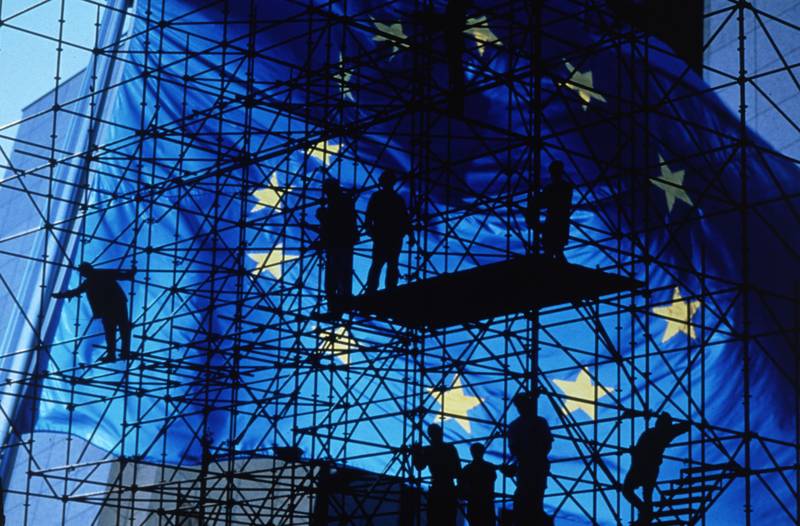 | © European Commission
| © European Commission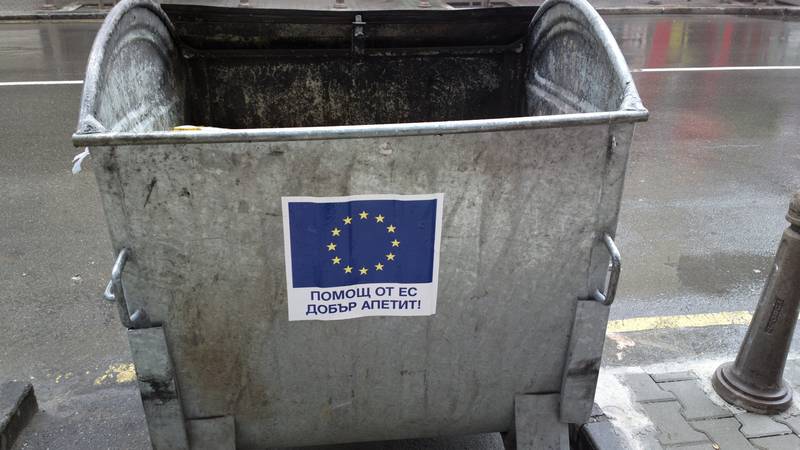 | © euinside
| © euinside Angela Merkel | © Council of EU
Angela Merkel | © Council of EU